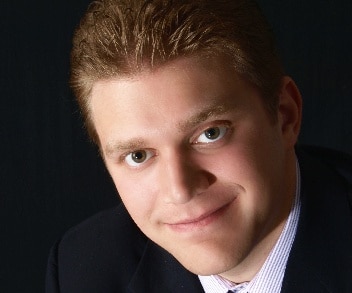Editor’s Note: This is the second part of Josh Rubin’s post. The first was published on May 23, 2025
Building Upon a Powerful Foundation of Patient Empowerment
In part 1 of this post I paraphrased Dr. Casey Means (referencing Robert F. Kennedy, Jr.), noting that without delving into the heated political debate vis-a-vis whether or not current administration health policies are actually mobilizing us toward achieving such laudable ends, three stated overarching objectives of the Make America Healthy Again (MAHA) movement are:
- To reverse the trend of America’s chronic disease epidemic so that we can show up to our nation’s 250th birthday on July 4, 2026 stronger than ever;
- To generate gold-standard, uncompromised, evidence-based research to inform our health guidelines;
- To eradicate corruption from our health agencies.
MAHA proposed that a disruptively transformative paradigm for health predating it by at least seventeen years, known as the Learning Health Systems (LHSs) vision, encapsulates three synergistic collaborative efforts that, interestingly, map almost 1:1 as enablers of the three respective articulated MAHA overarching objectives, encompassing:
- A disruptive vision of patient empowerment anchored in LEARNING;
- A novel transdisciplinary science of learning systems for transforming HEALTH;
- A grassroots movement to combat abuses of power in anti-learning SYSTEMS.
Patient empowerment driven by LHSs is an absolutely essential starting point. Indeed, reversing key indicators of chronic disease by Independence Day, 2026 requires knowing what works, but such knowledge alone will not in itself drive change (and ultimately better health for all). Rather, the knowledge must be accessible and actionable, mobilized to patients (and to all people making decisions affecting health) at the right time and in the optimally tailored form, so as to empower these individuals to exercise their autonomy to make such better informed health decisions (and to actually be able to take actions driven by such decisions). Coupling such an approach to patient empowerment anchored in systemic learning with a novel transdisciplinary science to generate uncompromised evidence-based research and an incipient movement to combat corruption underpinned by principles of LHSs, engenders the potential to ultimately unleash the power of multiple and diverse stakeholders to separately and collaboratively transform human health.
A Novel Transdisciplinary Science to Generate Uncompromised Evidence-Based Research
Generating gold-standard uncompromised evidence is at the core of the transdisciplinary science and corresponding sociotechnical infrastructure underpinning LHSs. Indeed, of the four overarching system level requirements identified over a decade ago to advance scientific research underpinning LHSs, it is no coincidence that the very first relates to myriad aspects of measuring, engendering, and continuously improving both trustworthiness and trust. Precisely defined “Scientific Integrity” has been recognized as one of the sacrosanct consensus Core Values of LHSs, and development of methodologies to learn valid lessons from real-world evidence has been integral to such advancement.
Combating Corruption Utilizing Learning Health Systems Principles
In the face of leadership scandals that have tarnished academic medicine, including issues of scientific fraud featured on Retraction Watch, or Armies of Enablers rendering possible surreptitious abuses of patients and students by those wielding power in academia, incipient research and corresponding advocacy has emerged to understand and combat such abuses of power from a system sciences perspective. A hallmark of all these monsters surreptitiously wearing different masks is their “anti-learning systems” character; they explicitly violate (but ostensibly champion) Core Values and Shared Commitments that embody LHSs. Hence, LHSs engender frameworks and sociotechnical infrastructures promising to combat corruption.
Synergistic Fusion
The separate objectives aimed at making America healthier and stronger than we have ever been by our 250th birthday, can be underpinned by LHSs. Indeed, LHSs engender the potential to democratize health in ways previously unimaginable. The vision embodied by the synergistic fusion of the related efforts discussed, promises to empower every American to indeed, ”all work together to give the gift of health to our children and our nation.”
Joshua C. Rubin, JD, MBA, MPH, MPP is a Clinical Assistant Professor of Learning Health Sciences at the University of Michigan Medical School Department of Learning Health Sciences. He is also the Executive Director and Vice President of the Board of Directors of the Joseph H. Kanter Family Foundation. On a pro bono basis, Rubin serves as Founding President and CEO of the Learning Health Community. He is a Lifetime Member of the Society for Participatory Medicine. He can be reach on X @JoshCRubin







Recent Comments